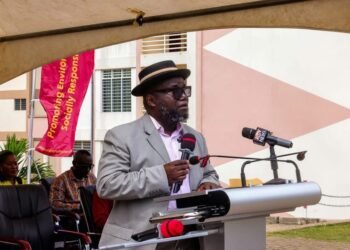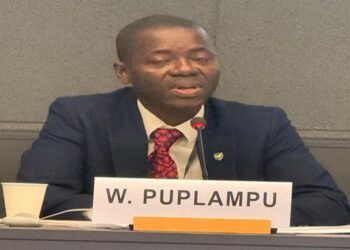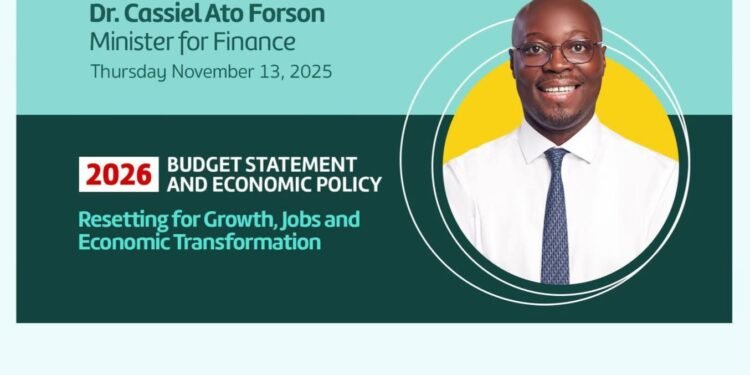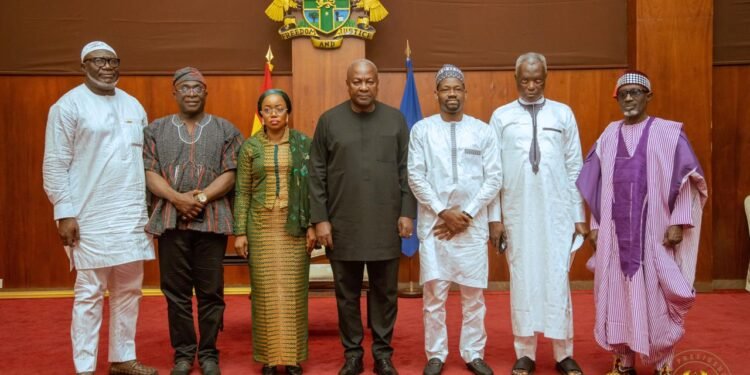The Ministry of Lands and Natural Resources has waded into the controversial standoff over the Black Volta Mining Project between Azumah Resources Ghana Limited and Engineers and Planners Company Limited (E&P), issuing a final seven-day ultimatum to the two companies to amicably resolve their differences or risk state intervention “in the best interest of the country.”
This directive, dated July 10, 2025, and signed by the Minister, Hon. Emmanuel Armah-Kofi Buah, underscores the government’s growing concern over the escalating tensions between the two mining-related entities and their increasing media engagements.
In the Minister’s letter, addressed to both companies and copied to the Minerals Commission, he acknowledged the numerous correspondences and public exchanges between Azumah Resources and Engineers & Planners regarding their dispute.
Without citing specific details of the disagreement, the Minister stressed the need for a mutually agreeable resolution and emphasized that failure to do so within the stipulated period would trigger a governmental decision.
“In light of the circumstances, I have decided to grant the parties a final period of seven (7) days within which to resolve the matter amicably. Should this period elapse without a mutually agreed resolution, a decision shall be taken in the best interest of the country.”
Hon. Emmanuel Armah-Kofi Buah, Minister for Lands and Natural Resources
He further directed the Minerals Commission to facilitate and support a reconciliation process, adding a cautionary note to both parties to desist from using the media as a battleground.

“I strongly urge all parties to refrain from addressing this matter through the media and instead focus on constructive dialogue and responsible engagement,” he said.
This move by the Minister signals the government’s intent to fast-track progress on what is believed to be a significant mining venture of national importance.
IMANI Raises Legal, Governance Concerns
However, the directive has triggered public commentary and scrutiny, especially from policy analysts concerned about transparency, legality, and process.
One of the most vocal reactions has come from Bright Simons, Honorary Vice President of the IMANI Centre for Policy and Education.
While commending the Minister’s call for dialogue, Bright Simons has raised a number of cautionary flags, particularly regarding what he sees as executive overreach and institutional silence.
“I agree with Mr. Minister that Azumah Resources and E&P need to sit down and get back to a meeting of minds or amicably part ways,” Bright Simons stated.
However, he expressed unease about what he described as an “especially problematic” development—namely, the involvement of the President of the ECOWAS Bank for Investment and Development (EBID), who he claimed participated in a “staged event” connected to the dispute.

According to Bright Simons, the decision of the President of the Ecowas Bank to fly into Ghana and participate in the E&P funding acquisition event amounted to ‘fanning the flames’.
This, he argued, is very problematic since EBID is an international bank which should not get into mining projects except after extensive due diligence, social, environmental, and political economy analysis, and broad communal consultations.
The IMANI’s Honorary Vice President went further to criticise EBID’s silence in the matter, stating that “EBID refuses to even comment, even though its President’s actions have allowed it to be dragged into a serious business-cum-political scandal in a member state.”
Legal and Regulatory Concerns
In terms of the Minister’s letter, Bright Simons took particular issue with the absence of any legal or regulatory citations to justify the seven-day ultimatum.
“I am a bit worried about the tone of the Minister’s letter for one and only one reason: he doesn’t cite any laws or regulations! What is the legal and regulatory basis for the 7-day ultimatum?”
Bright Simons, Honorary Vice President of the IMANI Centre for Policy and Education
Bright Simons reminded the public that the matter is already pending before both an arbitration panel and the local courts, and urged that executive involvement should focus on enabling fair compromises, not on pushing hasty decisions.

“With so many political undertones all over this murky situation, it is important that decisions taken by the government be seen as impartial, level-headed, and truly supportive of sound governance.”
Bright Simons, Honorary Vice President of the IMANI Centre for Policy and Education
He also called on the Ministry to explain what it meant by taking a decision “in the national interest” should the seven-day deadline pass without resolution.
“We need the government to articulate clearly what that interest is, and then explain from a policy standpoint how we will get there,” he said, suggesting that broad public trust hinges on such transparency.
Bright Simons concluded by acknowledging the Minister’s attention to the matter but emphasized that careful, lawful, and transparent processes are essential to resolving the dispute in a manner that protects Ghana’s investment climate and institutional integrity. “We thank the Minister for his attention to this matter of strong public interest,” he added.
READ ALSO: Gov’t Commits to Construct Strategic Road Networks to Maximise National Impact























